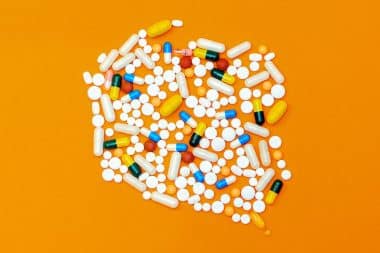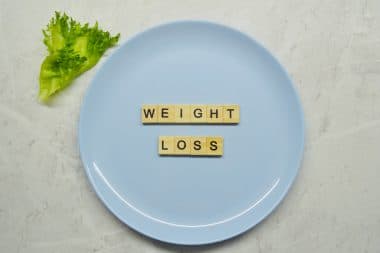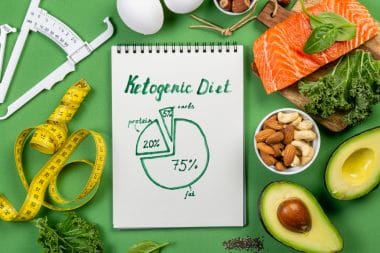You might be annoyed with all these ads for fancy juicers and recipes for green sludge so many celebrities swear are saving their lives, but juicing might be our true salvation. According to the USDA Dietary Guidelines for Americans, we should have a diet that is composed of 50 percents fruits and vegetables and other half the rest of stuff. Sounds sensible, but only four percents of Americans are following it. Juicing seems to be an easy way out of our bad eating habits and the obesity epidemics. Instead of eating our greens, as our mothers tell us, we can drink them. Just one glass a day of mixed veggies and fruits can cover all our shortcomings when it comes to produce portion of our diet. Scientists are increasingly finding that this type of diet is beneficial for a range of health issues.
The power of fresh juice
Whether you drink juice to lose weight or to build your muscle mass, there are three very important reasons for adding fresh juice to your regular diet:
-
Nobody eats enough vegetables, especially those that are chock full of nutrients. Drinking veggies in a liquid, condensed form allows us to consume recommended amount that is necessary for our health. An adult should eat four and half cups or 9 to 10 portions of vegetables and fruits every day, two and half cups of veggies and two cups of fruits.
-
Juicing in a specialized juicer ” Ëœpre-digests” ™ fruits and vegetables by liquefying them and separating nutrients from pulp or fiber. That makes them much easier to digest. It is particularly important if you have sensitive and delicate digestive system which is damaged from years of poor nutrition. If your stomach lining is damaged, you cannot absorb nutrients from your food easily. Juices are much easier to digest and contain all nutrients from food except fiber.
-
Juicing allows us to eat healthy vegetables that we would never put on our plate otherwise. Some vegetables, particularly leafy greens like kale, are extremely rich in nutrients, but taste awful. Mixed in a juicer with some favorite fruits or spices, we can swallow them just fine. Variety of different plants in our nutrition ensures that we get all necessary minerals and vitamins from our food, without the need for supplements.
-
Fresh juice is a popular breakfast for kids, it is fast and easy to make and you can smuggle some veggies with kids” ™ favorite fruits without them noticing.
-
Replacing one meal a day with fruit and vegetable juice allows you to ” Ëœsin” ™ during other meals, and even some junk food would not be too big a deal.
-
Instead of juice, your juicer can also make ice cream, turning dessert into a healthy food.
Why just not just eat whole fruits and veggies?
Many dietitians are opposed to juicing arguing that eating whole fruits and vegetables give us all the nutrients we need, plus the fiber that juice separates. They would be right, of course, if we did eat enough fresh produce to fulfill our needs. But, we do not. And when we do eat vegetables, we cook them, destroying most nutrients.
Even people who are willing to eat more produce in their diet do not have the time for their preparation, so they buy ready-made meals. Unfortunately, they are not only cooked, but are also loaded with preservatives. Fresh juice gives you fruits and vegetables in total: skin and all, raw and unprocessed, just as nature intended. Except in liquid form.
Health benefits of juicing
World Health Organization reports that poor nutrition is the major cause for the large number of chronic diseases in modern world. Center for Disease Control found that seventy percents of deaths in the US every year are from chronic diseases such as cancer, stroke and heart disease. 2005 statistics report that one out of two Americans has at least one and often more, chronic diseases. Obesity, the most obvious consequence of poor nutrition, affects one in three Americans.
What we mean by ” Ëœhealthy nutrition” ™ is nutrition rich in fresh produce. A research by a group of scientists from Germany discovered compelling evidence that increased use of fruits and vegetables in diet reduces risk of high blood pressure, heart diseases and stroke. They also found that increasing quantity of fruits and vegetables reduces our risk of some cancers, helps in maintaining healthy weight and reduces risk of obesity. The study also found proof that more fruits and vegetables in diet lowers our risk of some eye diseases, dementia and osteoporosis.
Scientists propose that their findings should be used to support national policies and campaigns that promote diet rich in fruits and vegetables.
A significant number of studies found evidence that diet rich in fresh fruits and vegetables plays an important supporting role in the health of our cardiovascular system.
Similar studies show that the increased daily use of vegetables and fruits in diet is associated with significantly lower risk of heart disease.
One study looked into the effects of increased consumption of fresh fruit and vegetables as a protection from stroke. Researchers found the direct association with fresh produce, but not with processed fruit and vegetables, concluding that it is probable that some important nutrients are lost in cooking.
An Italian study found proof of positive correlation between increased consumption of fresh vegetables and fruits and lowered risk of bladder cancer. Fresh produce is very rich in powerful cancer-fighting carotenoids.
The link between the diet rich in fresh vegetables and fruits and a number of diseases is increasingly being proven in various studies. Recent research shows such correlation with ADHD, dementia, asthma, glaucoma, diabetes, rheumatoid arthritis, Chron”s disease , chronic kidney disease, and others.
There is one message that we have problem with: there is no perfect, secret food that will make us beautiful, thin, healthy and long-lived. If there is a secret, it is in balanced nutrition, in a rich mix of foods, mostly consisting of fruits and vegetables. Juices, especially vegetable juices, give us concentrated nutrients and enzymes, but they are lacking other important stuff such as protein and fat. Juices also do not have any fiber, which is very important for healthy digestion. While replacing one meal every day with fresh juice gives us our load of vitamins and minerals, other meals should contain the rest of it: fiber, protein and good fat.
Juicing shows us that we do not need large quantity of food to feel full and energetic. It just requires right kind of food. Right food and smaller portions ” “ that is a perfect recipe for weight loss. Just throw in some serious exercise as well.







